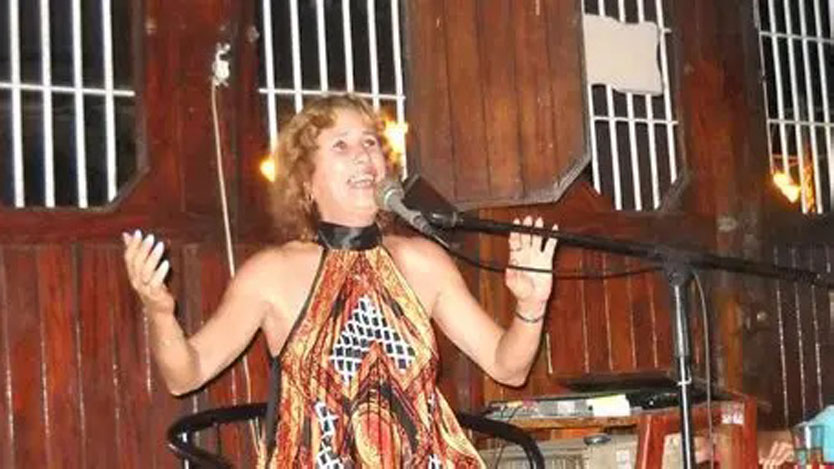Not only her singular timbre, but her stage histrionics established Sheila Mora as an irreplaceable legend of Avilanian music. Her final farewell leaves a void both in the local musical landscape and in the once-vibrant bohemian life of the «Land of Pineapple’s» cabarets.
She was, without doubt, the bohemian diva of her homeland. The bolero Una vez a la semana (Once a Week) by Avilanian composer Raúl Figueredo still resonates in collective memory thanks to her stentorian interpretation, equally powerful whether accompanied by a single guitar or a full orchestra.
Possessing a rare contralto – the deepest female voice – Sheila stood out for her tonal depth and richness. In her, this natural gift transformed into mystical charisma, a channel through which she sang emotions and disillusionments, sorrows and joys, hopes and dreams.
Her trajectory began early: at 8 years old she was already strumming a guitar, a path that would lead her to graduate as a Music Arts Instructor from the Center for Professional and Artistic Development, trained by fundamental teachers like Jesús Lacerda and César Alberti, to whom she always paid tribute.
Her artistic journey shone with milestones: a 1985 prize in Todo el Mundo Canta (Everybody Sings), performances at countless festivals, and the privilege of sharing stages with legends like Elena Burke and Pablo Milanés.
But the tribute for her 20-year career, directed by Raúl de la Rosa at the Teatro Principal, marked her crowning moment. There, she faced the challenge of performing Dolores Santa Cruz from the zarzuela Cecilia Valdés.
«It was something marvelous that marked a before and after,» she confessed to journalist Idania Pupo Freyre, emphasizing the difficulties of the costume, posture and demanding vocals, achieved before a packed theater.
For Sheila, cabarets were her essential school: «They teach us to handle costumes, fanciful makeup and connect with demanding audiences,» she often stated.
This made her particularly critical about Ciego de Ávila’s lack of such spaces: «It’s incredible that…there’s no nightclub with proper shows,» she lamented, especially mourning the abandonment of icons like the Las Piñas cabaret.
This deep-rooted connection to nightlife and live art rightfully earned her the epithet «the bohemian diva» – a title that resonated powerfully during her symbolic farewell at the Teatro Principal’s reopening.
There, Patricia Hernández, Marlenin Piña and an ensemble of excellent Avilanian artists honored the legend with grandeur, in the same coliseum that so often hosted, on its proscenium, the humility, talent, grace and enduring charisma of Sheila Mora.




